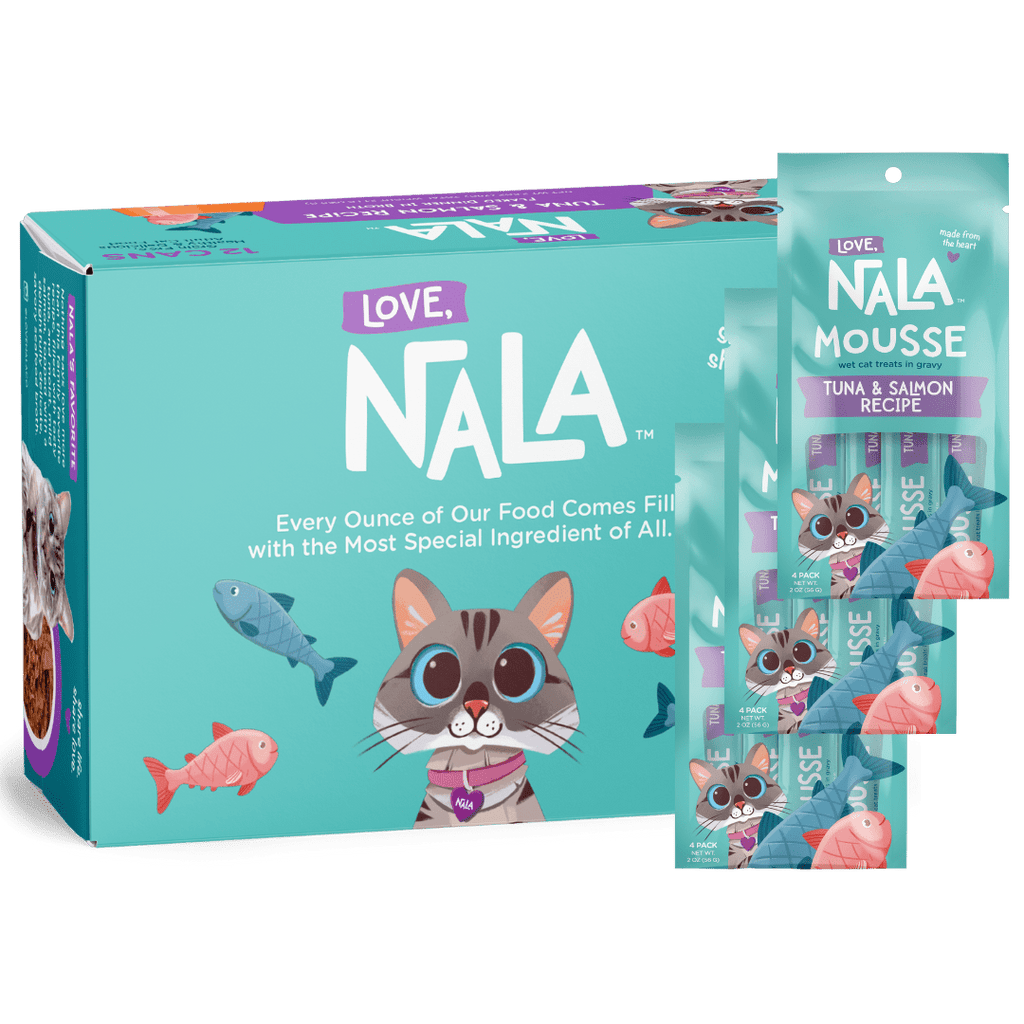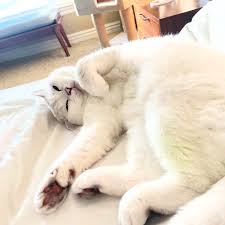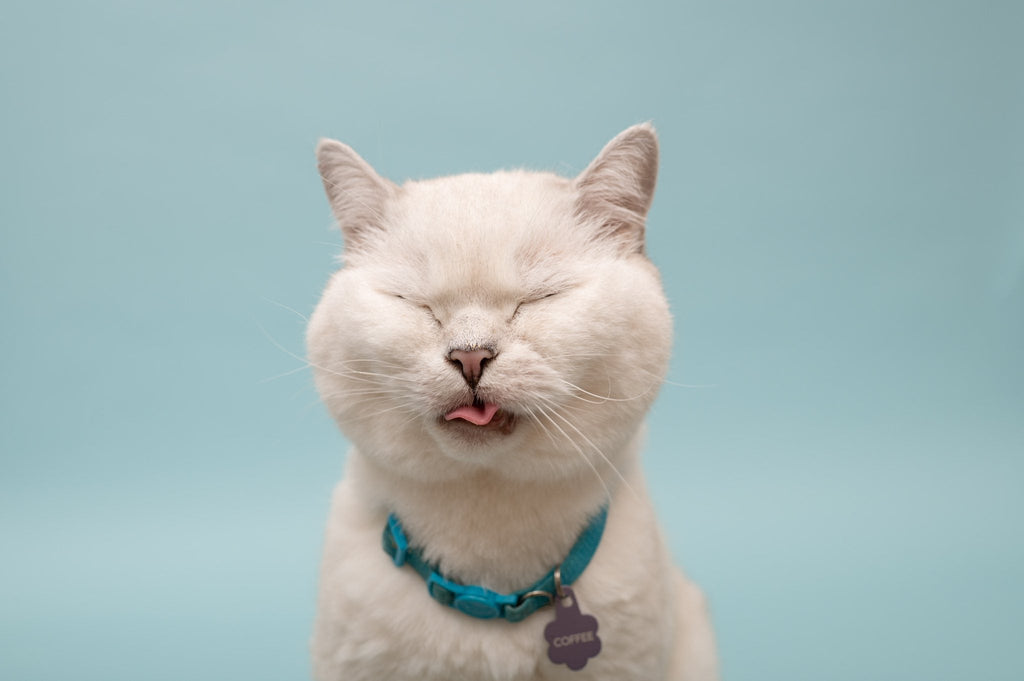As pet owners, we want to provide our feline companions with the best possible nutrition. However, with so many options available, it can be challenging to know what to choose. One factor that is often overlooked is the presence of artificial ingredients in cat food. While they may be convenient and cost-effective, these ingredients can pose serious health risks to our cats. In this article, we will discuss the importance of avoiding artificial ingredients in cat food and how to choose healthier options for your furry friend.

The Prevalence of Artificial Ingredients in Cat Food
Common Allergens Found in Artificial Ingredients
Artificial ingredients in cat food are a significant concern for pet owners due to their potential to cause various health issues in cats, particularly allergies and digestive problems. Common artificial ingredients include corn, wheat, and soy, which are often used as economical fillers. These grains can be difficult for cats to digest and may lead to gastrointestinal symptoms such as bloating, gas, and changes in stool consistency.
In addition to fillers, many commercial cat foods include artificial colors and flavors aimed at making the products more appealing to pet owners. However, these additives offer no nutritional benefit to cats and can be harmful. Artificial colors, for example, have been associated with behavioral changes and hypersensitivity reactions, which manifest as skin lesions. Artificial flavors, while enticing to cats, can also contribute to food intolerances, manifesting in similar adverse reactions. Another concern involves synthetic preservatives like BHA and BHT, used to extend shelf life, which has been implicated in various health issues including digestive disturbances and potential carcinogenic effects.
Symptoms of Digestive Issues in Cats
Digestive issues in cats are a significant concern for pet owners who wish to ensure their pets lead a healthy and comfortable life. Understanding the variety of symptoms that can manifest is crucial in identifying these problems early and providing the necessary care. Effective management of these conditions involves recognizing symptoms, adjusting care routines, and consulting with a veterinarian for professional advice. Here's a look at the common symptoms of digestive problems in cats:
- Vomiting: Vomiting may be caused by dietary indiscretions, such as eating toxic substances or non-food items, or it might indicate more serious health issues such as kidney failure or infections. Chronic vomiting can significantly affect a cat's health, causing dehydration, electrolyte imbalance, and weight loss. If a cat vomits frequently or exhibits signs of pain, it's crucial to seek veterinary care to determine the underlying cause and begin appropriate treatment.
- Diarrhea: Diarrhea is a common problem in cats that can stem from a variety of sources, including dietary sensitivities, infections, or chronic diseases like inflammatory bowel disease. The condition can lead to significant fluid and nutrient loss, making prompt veterinary intervention crucial to prevent dehydration and electrolyte imbalances. Owners should monitor their cats for additional symptoms such as lethargy, vomiting, or blood in the stool, as these can indicate more severe underlying conditions that require immediate attention.
- Constipation: Constipation in cats can occur if they eat a diet low in fiber, do not drink enough water, or have an underlying medical condition that affects their ability to defecate normally. This condition can cause discomfort and may lead to more serious complications, such as megacolon, if not treated properly. Signs that a cat may be constipated include infrequent or difficult bowel movements, hard and dry stools, and painful defecation.
- Obesity: An overweight cat is at a higher risk of developing numerous health issues, including diabetes, arthritis, and liver disease, all of which can further complicate their digestive health. Management involves implementing a controlled diet and ensuring regular physical activity, which can help reduce the risk of obesity-related digestive problems and improve overall health.
- Changes in Appetite: Any change in a cat’s normal eating habits, whether an increase or decrease in appetite, can indicate digestive discomfort or disease. Decreased appetite often occurs when eating leads to pain or discomfort, possibly due to conditions such as dental disease, gastrointestinal infections, or organ dysfunction. Conversely, an increased appetite might be associated with certain endocrine disorders. It is essential for cat owners to closely monitor their pets' eating patterns and seek veterinary advice if changes occur.
- Lethargy: Lethargy or decreased activity in a cat can be a sign of underlying digestive issues or other systemic problems. A lethargic cat might be less interested in play, appear more tired than usual, and be less responsive to its environment. This could be the body's way of conserving energy to fight off illness.
Understanding these symptoms and their potential implications for your cat's health is key to providing a nurturing environment and ensuring they receive the care they need. Prompt action and veterinary advice are essential when any of these symptoms are observed, as they can be indicators of serious health issues requiring immediate attention.

Cat Food Artificial Properties and Their Dangers
Allergies
When cats ingest food containing allergens, their bodies mistakenly identify these substances as harmful, triggering an allergic reaction. This can cause inflammation and discomfort in various parts of the body, most noticeably the skin and gastrointestinal tract. Continuous exposure to such allergens without appropriate intervention can lead to chronic issues and significantly impair the quality of life. Identifying and eliminating the specific allergens from the diet is crucial and often involves a dietary elimination trial under veterinary supervision to determine the offending ingredients.
Kidney Disease
Certain artificial ingredients, like sodium nitrite, found in some processed cat foods, are linked with an increased risk of kidney disease in cats. Kidney disease can be particularly devastating as it often goes unnoticed until it is quite advanced. Artificial ingredients can cause direct toxicity to kidney cells or lead to the formation of compounds that are difficult for the kidneys to process and eliminate. Chronic exposure to these toxins can lead to a gradual but irreversible decline in kidney function, characterized by symptoms such as decreased appetite, weight loss, increased thirst, and lethargy. E
Cancer
Artificial colors, such as Red 40, found in some commercial cat foods, have been implicated in increasing the risk of cancer in cats. These synthetic dyes are added to enhance the visual appeal of food but can have deleterious effects on health. The mechanism involves inducing oxidative stress and promoting DNA damage, which can lead to the development of tumors. Given the potential risks, opting for cat foods free from artificial colors and preservatives is advisable to help reduce the risk of cancer and support overall health.
How to Choose Healthier Cat Food
Choosing healthy cat food is crucial for maintaining your feline's health and longevity. The market offers various options, each promising to be the best for your pet. However, making an informed decision can greatly impact your cat's overall well-being. Here are some detailed tips to help you select the best cat food:
- Read the Label - When selecting cat food, the importance of reading the label cannot be overstated. Look for products that list whole meats like chicken, beef, or fish as the primary ingredients. High-quality fruits and vegetables should also be included. It's crucial to avoid cat foods that contain artificial additives, unnecessary fillers, or meat by-products, as these can be detrimental to your cat's health. A good rule of thumb is to choose cat food with ingredients that are easy to recognize and beneficial for your cat’s nutritional needs.
- Check the Protein Content - Protein is essential for your cat's diet, as cats are obligate carnivores. This means their bodies are finely tuned to process meat. You should ensure that the cat food you choose lists whole meats as the first ingredient, and not meat by-products or grain-based proteins. Ideally, the protein should come from a named source like chicken, turkey, lamb, or fish. The higher the quality and quantity of protein, the better it will support your cat's muscular health and overall energy levels.
- Consider Your Cat's Age and Health - The nutritional needs of cats vary with their stage of life. Kittens require diets rich in calories and nutrients to support rapid growth, while senior cats benefit from lower-calorie diets that support kidney health and joint maintenance. Specialized formulas are available for each life stage, providing tailored nutrition that caters to your pet's specific needs.
- Choose Wet or Dry Cat Food - Both wet and dry foods offer advantages. Wet cat food is typically higher in protein and moisture, which helps in hydration, and is often more palatable for picky eaters. On the other hand, dry cat food is convenient for many pet owners and can assist in keeping your cat’s teeth cleaner by reducing plaque buildup. Depending on your lifestyle and your cat's preferences, you might choose one type over the other, or a mix of both to provide variety and balanced nutrition.
- Look for Specialty Cat Food - For cats with specific dietary needs or health concerns, specialty cat foods can be a great choice. These foods are formulated to address issues such as obesity, urinary tract health, or food allergies. Ingredients are selected based on their ability to mitigate these problems. For instance, weight management formulas typically have lower fat content and added fiber to help keep cats feeling full longer.
By following these tips, you can ensure your cat enjoys a healthy diet that supports a long and happy life. Make your choice based on the quality of ingredients, the specific needs of your cat, and the type of food that fits your lifestyle. This approach will not only cater to their health requirements but also contribute to their overall quality of life.

Benefits of Natural and Organic Cat Food
High-Quality Ingredients
Natural and organic cat food stands out primarily because of its high-quality ingredients. These foods often use premium, real food sources, such as grass-fed meats, wild-caught fish, and organically grown fruits and vegetables, avoiding the use of artificial enhancers or preservatives typically found in conventional cat foods. The whole meats included are not only more palatable but also provide a richer, more balanced profile of amino acids and essential nutrients. This superior ingredient quality helps ensure that the cat receives all the necessary components for robust health, supporting everything from muscle growth to maintaining a lustrous coat.
Better Digestion
The focus on natural ingredients in organic cat food means it's free from these potential irritants, making it a suitable option for cats with sensitive stomachs or food intolerances. Improved digestibility ensures that cats can absorb more nutrients from their food, which is crucial for their overall health. Maintaining a healthy weight can also be aided by this, since it may result in fewer digestive problems. Feeding your cat a diet that is easy on their stomach not only enhances their comfort and well-being but also reduces the likelihood of digestive distress.
Better Taste
The taste of cat food is a critical factor in whether a cat will accept and enjoy their meals. Natural and organic cat foods often offer a superior taste experience due to their use of high-quality, fresh ingredients like real meat and fresh vegetables. Unlike conventional cat foods, which might rely on meat by-products, organic cat food tends to be more flavorful naturally, appealing more to a cat’s discerning palate. Cats are more likely to eat consistently and heartily when their food tastes better, which is particularly beneficial for picky eaters. Additionally, the richer flavor profile from the natural ingredients can stimulate a cat’s appetite, encouraging them to eat enough to meet their nutritional needs, which is especially important for older cats or those with health issues that might affect their desire to eat.
Choosing healthier options for our feline companions is crucial to their health and well-being. By making informed decisions when choosing cat food, we can ensure that our cats receive the necessary nutrients to maintain a healthy and happy life. It's essential to read labels, understand ingredients, and choose natural and organic options that are free from harmful additives. Let's prioritize our cats' health and make informed decisions when it comes to their nutrition to give them the best life possible.
Helpful Links
- How To Change Your Cat's Diet To Grain Free
- How to Choose Cat Food: Vet-Recommended Tips for Healthy Cats
- Boops, Biscuits, and Beans!
- Choosing the Right High Fiber Cat Food for Your Pet
- Nutrition For Cats
- Wet Cat Food
- Fostering Kittens During Kitten Season
- Grain-Free Cat Food Ingredients: What to Look For




















